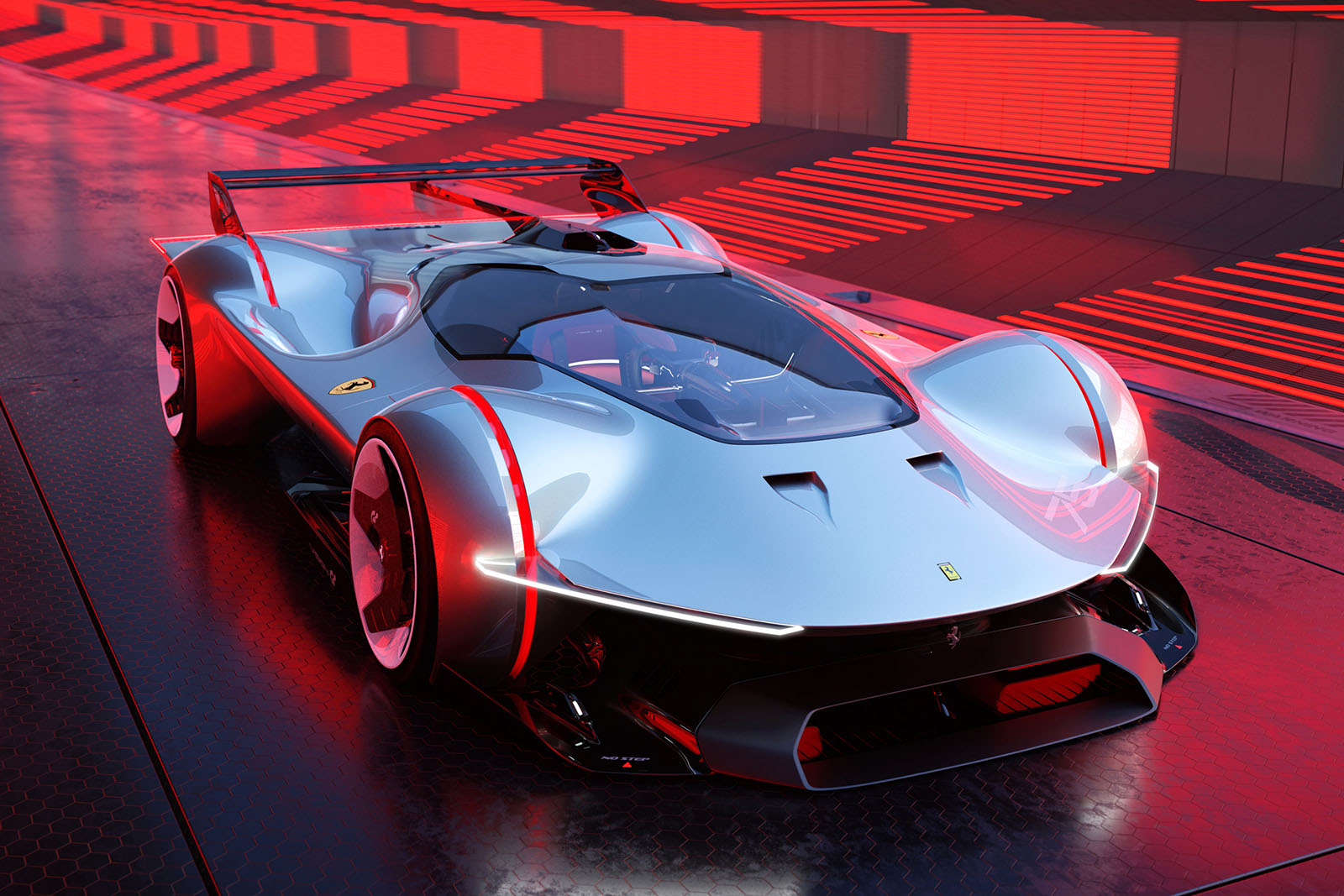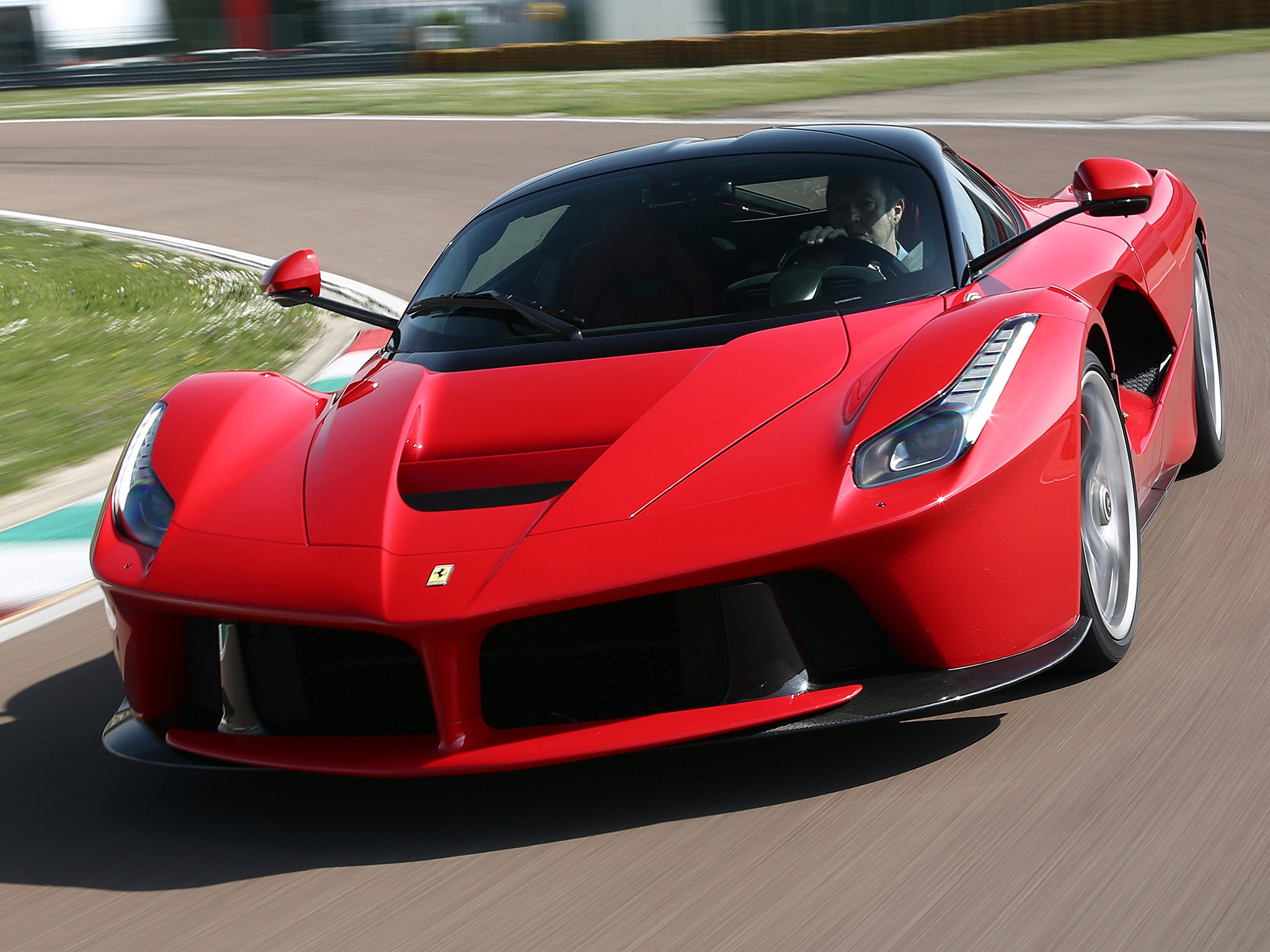Unmasking 'Ferrari Now That's TV': The Real Name Behind The Legend
Have you ever found yourself utterly captivated by the sight and sound of a Ferrari tearing across your screen, perhaps thinking, "Ferrari, now that's TV!"? It's a phrase that perfectly encapsulates the visceral excitement and unparalleled drama that the iconic Prancing Horse brand brings to our living rooms. But in an era where personalities often become synonymous with the brands they represent or the shows they host, a natural question arises: who is the "real name" behind this evocative sentiment, this "Ferrari Now That's TV" phenomenon?
While "Ferrari Now That's TV" isn't the official title of a specific show or an individual's formal moniker, it speaks volumes about the enduring appeal of Maranello's finest in the broadcast world. From the thrilling highs and lows of Formula 1 races to in-depth reviews of their latest road cars, Ferrari consistently delivers content that demands attention. This article delves into the essence of what makes Ferrari such compelling television, exploring the key figures and strategic approaches that ensure the brand remains a global spectacle, keeping millions of enthusiasts glued to their screens, year after year.
Table of Contents
- Unpacking "Ferrari Now That's TV": A Cultural Phenomenon
- The Architect of Automotive Television: Jeremy Clarkson
- Ferrari's Media Strategy: From Exclusive Events to Global Broadcasts
- The Roar of the Crowd: Ferrari's Impact on F1 and Fan Engagement
- Beyond the Track: Ferrari's Commercial Evolution and Quality
- The Broader Broadcast Landscape: Where Ferrari Meets Cricket
- The Enduring Allure: Why Ferrari Continues to Dominate TV
- Conclusion: The Unseen Force Behind "Ferrari Now That's TV"
Unpacking "Ferrari Now That's TV": A Cultural Phenomenon
The phrase "Ferrari Now That's TV" isn't just a catchy tagline; it's a testament to how deeply ingrained the Ferrari brand is in the fabric of popular culture and broadcast entertainment. It encapsulates the brand's ability to consistently deliver visually stunning, audibly thrilling, and emotionally resonant content. Whether it's the sleek lines of a new supercar being unveiled, the raw power of an F1 car pushing the limits on a racetrack, or the passion of its global fanbase, Ferrari has an inherent cinematic quality. It’s a brand built on dreams, speed, and Italian flair, making it inherently appealing to television producers and viewers alike. The sheer spectacle of a Ferrari in motion, combined with its rich heritage and competitive spirit, translates seamlessly onto the screen, creating moments that are truly unforgettable. This intrinsic appeal is why, for many, the very sight of a Ferrari on television elicits that immediate, enthusiastic reaction: "Now that's TV!"The Architect of Automotive Television: Jeremy Clarkson
While no single individual is officially titled "Ferrari Now That's TV," if we consider who has most powerfully and consistently brought the essence of Ferrari to millions of television viewers worldwide, shaping public perception and showcasing the brand's dramatic appeal, one name stands out prominently: Jeremy Clarkson. His unique, often controversial, but undeniably charismatic approach to automotive journalism transformed car reviews into must-watch entertainment, and Ferraris frequently took center stage in his most memorable segments. His ability to articulate the visceral experience of driving these machines, coupled with the high production values of his shows, truly made Ferrari a television spectacle.Biography: The Journey of Jeremy Clarkson
Jeremy Charles Robert Clarkson, born on April 11, 1960, in Doncaster, England, began his career in local journalism before venturing into automotive writing. His distinctive, opinionated style quickly garnered attention, leading him to present the original BBC series *Top Gear* in 1988. After a hiatus, he spearheaded the show's hugely successful reboot in 2002, transforming it from a traditional motoring program into a global entertainment phenomenon. Under his leadership, alongside co-presenters Richard Hammond and James May, *Top Gear* became renowned for its ambitious stunts, epic road trips, and often hilarious, sometimes irreverent, reviews of the world's most desirable cars, including countless Ferraris. Clarkson's segments on Ferraris were always a highlight. He didn't just review them; he put them through their paces in spectacular fashion, often in breathtaking landscapes, capturing their beauty, speed, and inherent drama. His reviews of models like the Ferrari Enzo, F430, 458 Italia, and LaFerrari became iconic, influencing a generation of car enthusiasts and solidifying Ferrari's status as the ultimate automotive dream. After his departure from *Top Gear* in 2015, he, Hammond, and May launched *The Grand Tour* on Amazon Prime Video, continuing their brand of high-octane automotive entertainment, with Ferrari still a prominent feature. Clarkson's direct, no-nonsense commentary, combined with his evident passion for cars, made him a compelling figure who consistently delivered "Ferrari Now That's TV" moments to a global audience.Personal Data & Key Contributions
| Category | Details |
|---|---|
| Full Name | Jeremy Charles Robert Clarkson |
| Born | April 11, 1960 (age 64 as of 2024) |
| Nationality | British |
| Occupation | Journalist, TV Presenter, Farmer, Writer |
| Known For | Presenting *Top Gear* (1988-1999, 2002-2015), *The Grand Tour* (2016-present), *Clarkson's Farm* (2021-present) |
| Key Contributions to "Ferrari Now That's TV" |
|
Ferrari's Media Strategy: From Exclusive Events to Global Broadcasts
Ferrari's presence on television is not merely accidental; it's a carefully cultivated aspect of their brand strategy. The company understands the power of visual storytelling and direct engagement with its most loyal clientele and the broader public. Information like "Received from ferrari this morning, [attach] exclusive ferrari events for 2025" highlights how Ferrari leverages unique experiences to generate media buzz. These exclusive events, whether private unveilings, track days for owners, or anniversary celebrations, are often documented and shared through official channels or picked up by automotive media outlets. By inviting brand ambassadors, journalists, and select enthusiasts, Ferrari ensures that the excitement and luxury surrounding their products are broadcast far and wide. This strategy extends beyond product launches to include a robust presence in motorsports, particularly Formula 1, which serves as a global stage for the brand. Their commercial policy updates, as mentioned in "“ferrari” or the “company”) announces it will update its commercial policy," often reflect a dynamic approach to how they manage their image and market their products, recognizing the immense value of media exposure. The goal is to maintain Ferrari's aspirational status, making every appearance, whether on a racing circuit or a review show, a compelling piece of "Ferrari Now That's TV."The Roar of the Crowd: Ferrari's Impact on F1 and Fan Engagement
For many, the ultimate "Ferrari Now That's TV" experience comes from Formula 1. The Scuderia Ferrari team is not just a participant; it is the heart and soul of F1 for millions globally. The intense discussions, like "Join the ferraris discussion to chat with more than 200,000 ferrari owners and enthusiasts around the globe" and "Join the f1 discussion to chat with more than 200,000 ferrari owners and enthusiasts around the globe," underscore the immense passion and community surrounding the brand. These forums are buzzing with debates on everything from race strategies to driver performances, all fueled by what unfolds on television. The question "Can ferrari survive without winning f1" is a perennial one, demonstrating how deeply intertwined Ferrari's identity is with its racing success. The drama of F1, amplified by the passionate Tifosi, creates unparalleled television. Every overtake, pit stop, and podium finish (or lack thereof) becomes a moment of collective emotion shared by hundreds of millions. Television broadcasts capture not just the speed and technology, but also the human drama, the team strategy, and the raw emotion of competition, making F1 with Ferrari at its core, a truly captivating spectacle. The discussions in 'ferrari discussion (not model specific) ' started by nicolaprince, jun 1, 2025, further exemplify the ongoing, vibrant dialogue that TV coverage ignites among enthusiasts.Beyond the Track: Ferrari's Commercial Evolution and Quality
Beyond the high-octane world of racing, Ferrari's presence on television also highlights its evolution as a luxury car manufacturer. The sentiment, "A production ferrari today is an infinitely better product from a quality perspective than anything produced in the enzo era and i am speaking from experience having owned and," reflects a crucial shift. Modern Ferrari production models are not just performance machines; they are meticulously crafted works of art, embodying unparalleled quality and technological sophistication. Television programs, whether documentaries, review shows, or lifestyle segments, play a vital role in communicating this evolution to a wider audience. These broadcasts often delve into the manufacturing process, showcasing the skilled artisans, cutting-edge technology, and obsessive attention to detail that goes into every Ferrari. They highlight the bespoke options, the advanced materials, and the rigorous testing that ensure each vehicle is a masterpiece. This transparency,- New Restaurants In Hawaii
- The Hillside Estate Photos
- North South Clothing
- El Ojo De San Pedro
- Sulzbacher Village Photos

Ferrari’s 1338bhp VGT concept previews future sports car design | Autocar

FERRARI LaFerrari Specs, Performance & Photos - 2013, 2014, 2015

The Definitive Ferrari